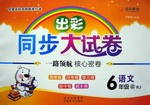题目内容
B
People in the United States honor their parents with two special days:Mother’s Day, on the second Sunday in May, and Father’s Day, on the third Sunday in June. These days are set aside to show love and respect for parents. They raise their children and educate them to be responsible citizens. They give love and care. These two days make us think about the changing roles of mothers and fathers. More mothers now work outside the home. More fathers must help with child care.
These two special days are celebrated in many different ways. On Mother’s Day people wear carnations. A red one symbolizes a living mother. A white one shows that the mother is dead. Many people attend religious services to honor parents. It is also a day when people whose parents are dead visit the cemetery. On these days families get together at home as well as in restaurants. They often have outdoor barbecues for Father’s Day. These are days of fun and good feelings and memories.
Another tradition is to give cards and gifts. Children make them in school. Many people make their own presents. These are valued more than the ones bought in stores. It is not the value of the gift that is important, but it is “the thought that counts”. Greeting card stores, florists, candy makers, bakeries, telephone companies, and other stores do a lot of business during these holidays.
55. Which of the following is NOT a reason for children to show love and respect for parents?
A. Parents bring up children.
B. Parents give love and care to children.
C. Parents pass away before children grow up.
D. Parents educate children to be good persons.
56. Which do you think is right about “carnation”?
A. It has only two kinds of colors.
B. It’s a kind of flower showing love and best wishes.
C. People can wear carnations only on the second Sunday in May.
D. It refers to the special clothes people wear on Mother’s Day or Father’s Day.
57. What do you know from the passage?
A. Not all the children respect their parents.
B. Mother’s Day and Father’s Day are both in May.
C. Fathers are not as important as mothers at home.
D. Fewer women worked outside the home in the past.
58. On Mother’s Day and Father’s Day, _________.
A. people usually have family parties
B. everyone goes to visit the cemetery
C. children always go to parents’ home
D. hand-made cards are the most valuable gifts
55-58 CBDA
解析

 出彩同步大试卷系列答案
出彩同步大试卷系列答案 son apples. Jefferson never spoke to his honored (忠实的) guests about the fact.
son apples. Jefferson never spoke to his honored (忠实的) guests about the fact. 0. According to the passage, which of the following is NOT true?
0. According to the passage, which of the following is NOT true?